Day 3 of SB’24 San
Diego
opened with a lineup of keynotes from industry leaders showcasing the innovative and collaborative
sustainability efforts of leading brands.
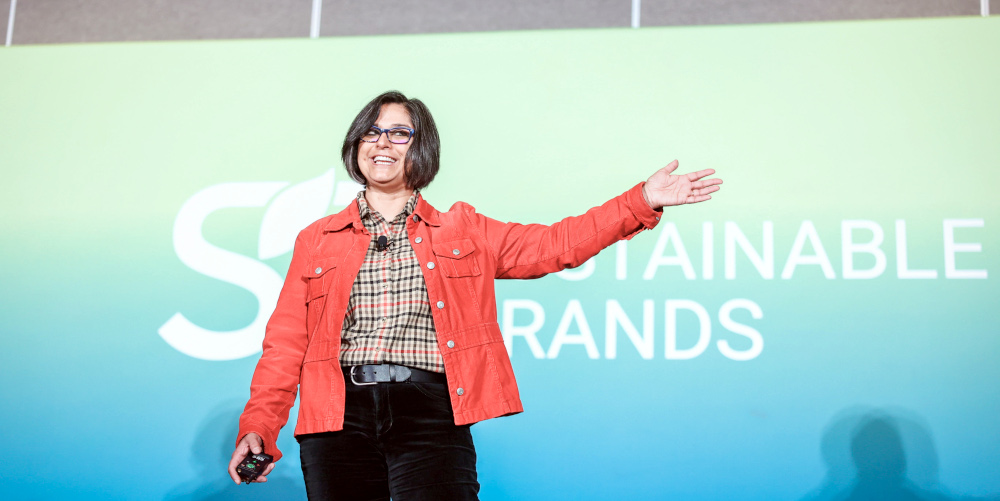 Roma McCaig
Roma McCaig
Roma McCaig, Chief Public Affairs and
Impact Officer at REI, kicked off the session by emphasizing
REI's mission to make outdoor access available to
all,
with a strong focus on advocacy and environmental initiatives. A cornerstone of
its efforts is the long-running "Opt Outside"
campaign
— an aspect of which encourages employees and consumers to spend time
outdoors
by closing all REI stores on Black
Friday.
In line with its commitment to removing barriers to outdoor engagement, REI has
conducted extensive research to better understand the challenges people face
when it comes to advocating for the climate. Despite widespread environmental
concern, many individuals feel overwhelmed, uncertain about how to take action,
or believe their efforts won't make a meaningful difference. REI seeks to
address this gap by cultivating optimism and a sense of community, turning
concern into tangible action.
“When ‘me’ becomes ‘we,’ radical change is at our fingertips,” McCaig stressed. With
this idea in mind, REI launched the Cooperative Action
Network, which has successfully mobilized
350,000 members to advocate for climate-friendly policies — resulting in
significant environmental protections, including preserving 250 million acres of
land.
How Amazon is helping customers switch to sustainable
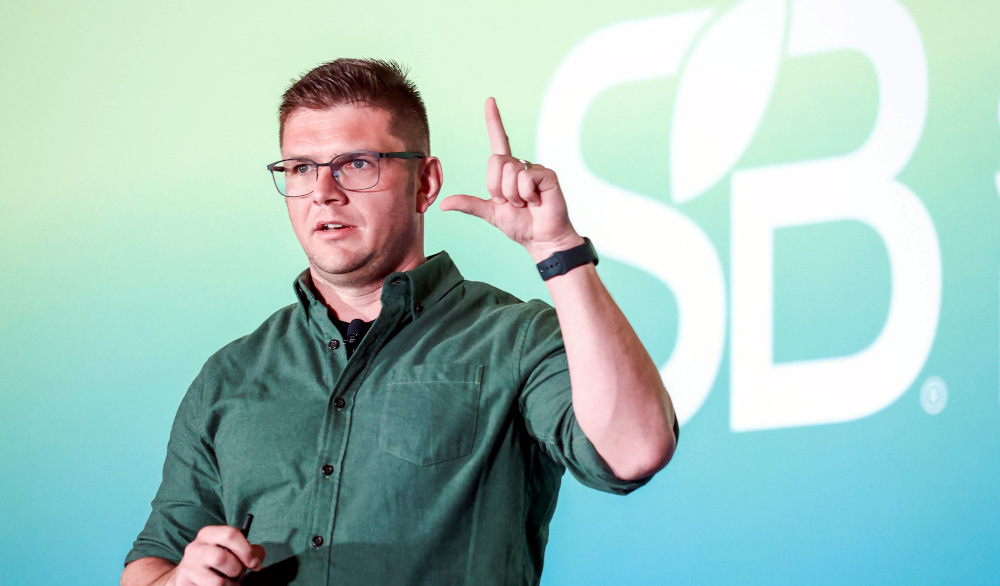 Zac Ludington
Zac Ludington
Zac Ludington, Head of Product &
Operations at Amazon, then spoke about the retail
giant’s commitment to sustainability through its Climate
Pledge,
which aims to meet the Paris Agreement's goals 10 years ahead of schedule.
Amazon's Climate Pledge Friendly
program
simplifies sustainable shopping by labeling over a million eco-friendly
products, increasing consumer engagement and global expansion. An example of
this can be seen if you hover over the green leaf on a product to see its
verified sustainability features — such as worker wellbeing or FSC-certified
packaging — encouraging consumers to both educate themselves on the product and
make a better choice, depending on what matters to them. Since its launch, over
100 million customers have switched to more sustainable products; the challenge,
Ludington said, lies in balancing innovation with affordability.
Still, Amazon continues to drive industry-wide change by providing educational
resources; finding ways to collaborate; and developing new, sustainable
initiatives for both consumers and brands. “We accept that there is never an end
to innovation,” Ludington said. “We will always insist on better features.”
Lessons from Logitech’s collaborations with transformative disruptors
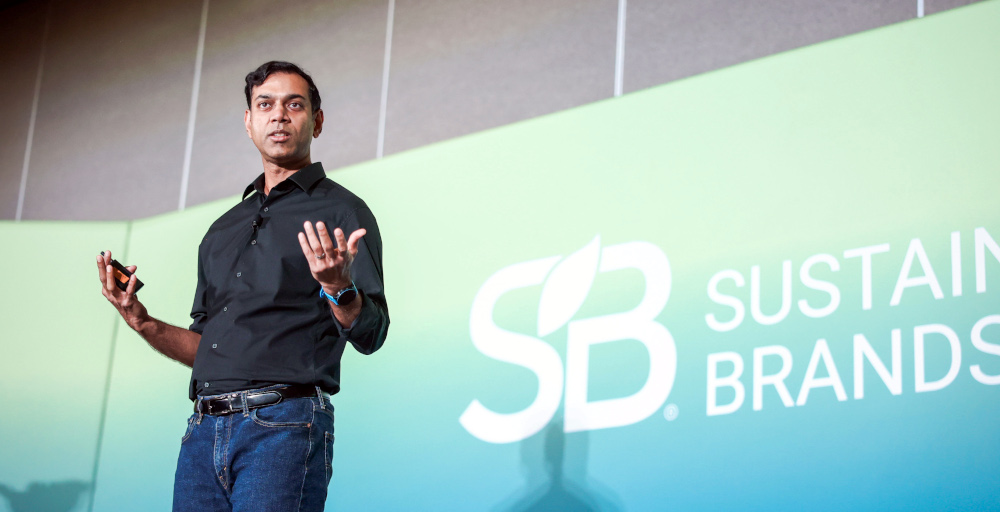 Prakash Arunkundrum
Prakash Arunkundrum
Next, Prakash Arunkundrum — Chief
Operating Officer & GM of Logitech for Business at
Logitech — emphasized sustainability as integral to
product design. By reducing environmental impacts across its portfolio —
including increasing renewable energy and responsible materials in manufacturing
— Logitech has made significant strides. And in 2023, the company launched its
Future Positive
Challenge —
inviting startups and industry disrupters to collaborate on sustainability
solutions, especially in areas such as packaging and circuit technology —
through which Logitech has been able to reduce its footprint by 24 percent.
Logitech is committed to transparency, carbon
labeling
all products, and prioritizing circularity and longevity in
design.
“Small things we can do to add up to big things,” Arunkundrum asserted.
Check out more highlights from throughout the week at SB’24 San Diego!
Cleaning up the beauty industry’s ugly packaging waste
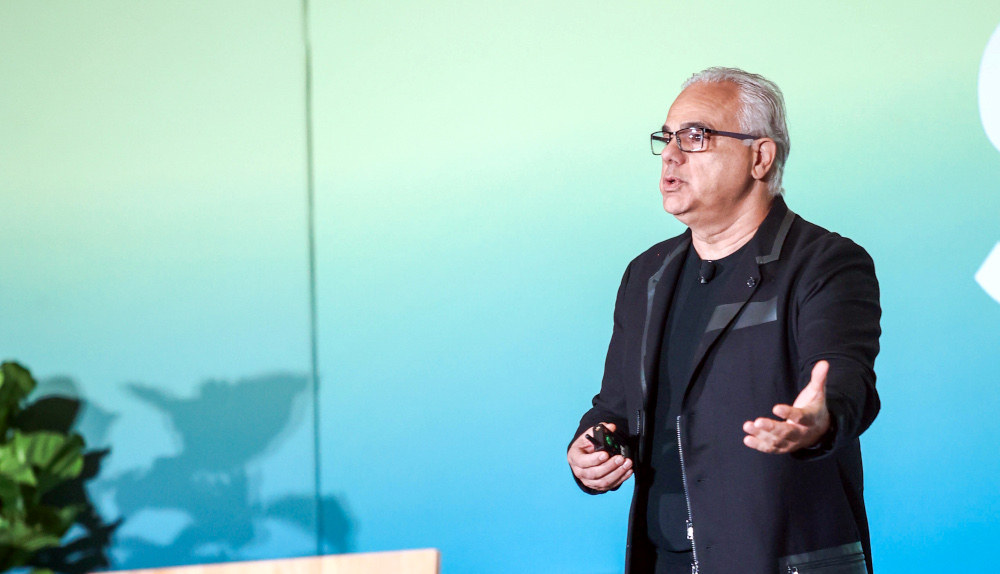 Victor Casale
Victor Casale
Speaking of small things adding up, MOB Beauty
co-founder Victor Casale
then shared insights from the company’s efforts to eliminate beauty packaging waste
on an industrywide scale. Casale, who pioneered one of
MAC’s first take-back programs in 1991,
launched MOB four years ago with sustainability at its core — promoting
refillable, recyclable and compostable packaging options. To foster broader
industry change, MOB co-founded the PACT
Collective — a nonprofit that unites beauty
brands, suppliers and retailers — including Ulta, Sephora and
Eastman — to reduce waste and standardize circular packaging
practices
with take-back programs for difficult-to-recycle packaging from personal-care
products. One notable innovation, New
Matter
— a new, recyclable pump recently debuted by Credo
Beauty — features 85 percent recycled resin,
demonstrating the dawn of a new class of sustainable beauty packaging.
As Casale emphasized, "Commitment is the key to making meaningful change."
Unlocking circularity with molecular recycling
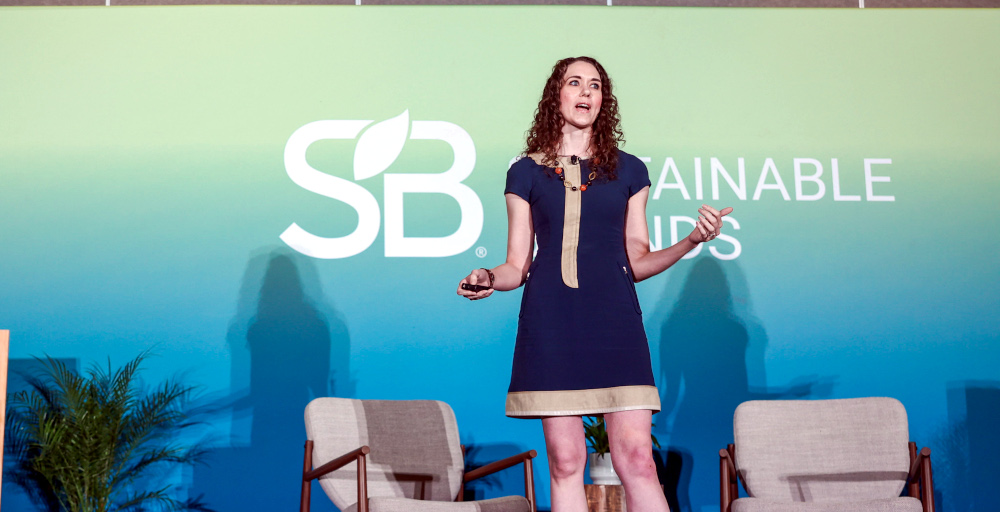 Katherine Hofmann
Katherine Hofmann
Speaking of recyclability, a way to drive sustainability across industries is by
expanding the existing recycling infrastructure. Katherine
Hofmann, Sustainability
Strategic Initiatives Manager at Eastman, rounded
out the keynotes by highlighting the role of molecular
recycling
in advancing circular economies. Eastman’s process breaks down plastics on a
molecular level — allowing for the recycling of previously non-recyclable
materials, including
textiles
and opaque packaging. Molecular recycling not only preserves the quality of
materials but also addresses the need for diverse recycling
technologies
to manage different types of materials. Eastman’s facilities aim to restore
confidence in recycling through transparency and third-party certification —
demonstrating that a comprehensive, system-wide approach is essential to
achieving circularity.
Get the latest insights, trends, and innovations to help position yourself at the forefront of sustainable business leadership—delivered straight to your inbox.
Impact Manager, Purpose + Sustainability
Formerly working in the advertising world in Kansas City, Hannah Zimmerman has now married her past experience with her passion for sustainability. When she isn't chasing her four-year-old daughter or helping companies along on their sustainability journey through consulting, reporting, communications and certifications, she is working on her master's in Sustainability through Harvard.
Published Oct 22, 2024 2pm EDT / 11am PDT / 7pm BST / 8pm CEST